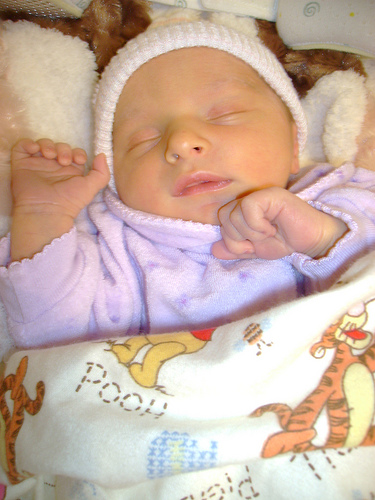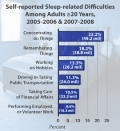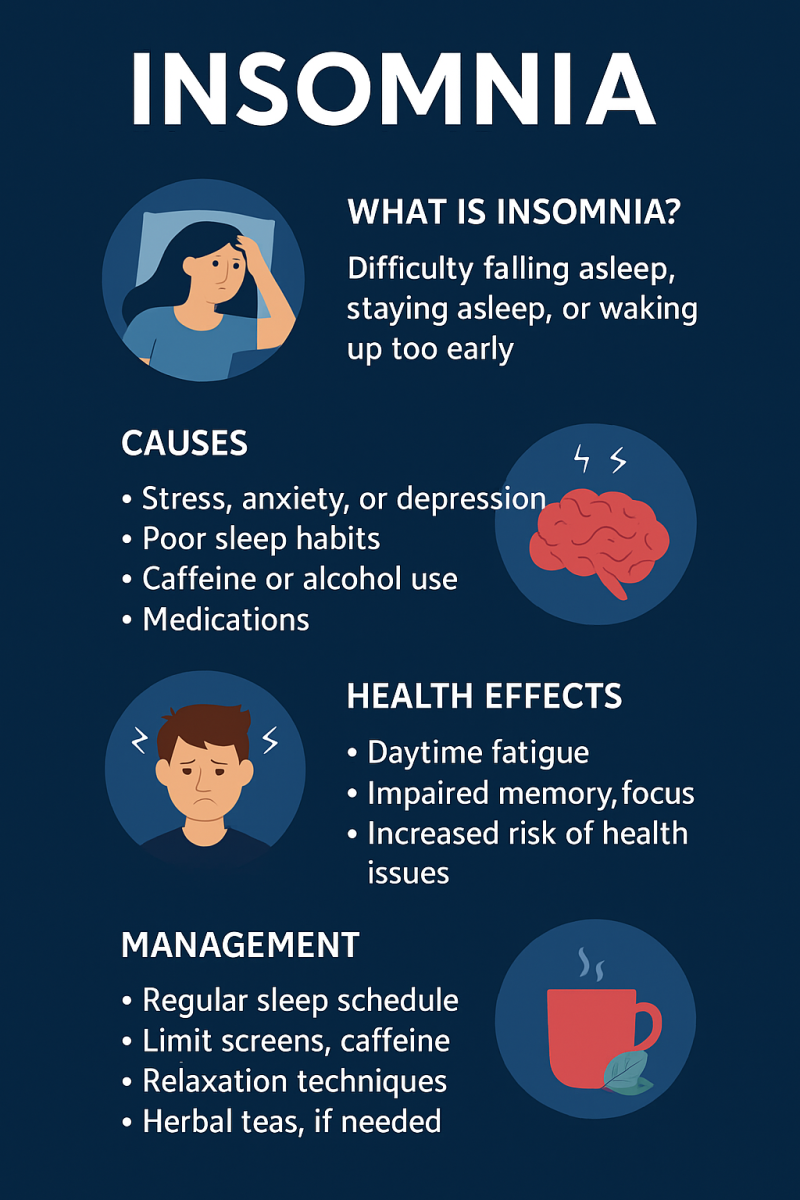Common Sleep Problems

Are you one of millions of people who think life would be pretty good….if you could just get some sleep? Just feeling tired or drowsy is only one negative result from getting too little sleep. Sleep loss can have many effects.
National Sleep Foundation 2009 Poll
The National Sleep Foundation's latest poll results shows a strong link between the quality of sleep and overall health and well-being. Sleeplessness also has a cost for businesses and the health care budget.
- Almost a third of the poll responders said their sleeplessness reduced the quality and accuracy of their work.
- A sleep-deprived brain has more difficulty processing visual information, causing a loss in visual comprehension.
- Testing at the Walter Reed Army Institute showed that sleep loss has a major impact on decision making ability.
- Research shows that people who sleep less than seven hours a night are almost three times as likely to develop colds or respiratory symptoms compared to well-rested people.
- Sleep deprivation costs businesses in the US nearly $150 billion a year in reduced productivity and absenteeism.
- Healthcare costs for insomnia in the US are estimated at $12 billion - not including $2 billion for sleep-promoting drugs.
How Poor Sleep Affects Your Health
Poor sleep habits also can be a danger to others. A majority of people in the National Sleep Foundation's 2009 poll showed 54% of the participants admitted driving while drowsy, and nearly a third said they had actually nodded off or fallen asleep while driving.
This Sleep in America poll also revealed the disparity in health between those who sleep well and those who don't. Healthy subjects were found to be twice as likely to exercise and follow good eating habits as those not as healthy. A major difference between the two groups was the likeliness of getting sufficient sleep.
Sleep disorders are often associated with other chronic diseases like diabetes and hypertension, and they can accelerate each other. Insomnia can also be a risk factor for depression and a symptom of a number of medical, psychiatric, and sleep disorders. In fact, insomnia appears to be predictive of a number of disorders, including depression, anxiety, alcohol dependence, drug dependence, and suicide.
Sleep, Hormones and Weight Gain
Leptin and grehlin are hormones that help the body control appetite and weight gain and loss. Leptin suppresses appetite, while grehlin increases appetite and may prevent a person from losing weight.
When lack of sleep becomes a chronic problem, levels of Grehlin increases, causing greater appetite, and levels of Leptin decrease. Regardless of diet and exercise, it's possible that some obesity is caused, or made worse, by sleep deprivation.
Do You Sleep Like a Baby?

What can you do to sleep better?
- Keep to a regular sleep and waking schedule.
- Avoid taking long daytime naps.
- Don't take caffeinated drinks or alcohol late in the day or at night.
- Get regular exercise during the day--make sure you exercise at least 5 to 6 hours before bedtime.
- Eat dinner at least 2 to 3 hours before bedtime.
- Keep your bedroom dark, quiet, and cool. If light is a problem, try a sleeping mask. If noise is a problem, try earplugs, a fan, or a "white noise" machine to cover up the sounds.
- Follow a routine to help relax and wind down before sleep, such as reading a book, listening to soothing music, meditating or taking a bath.
- If you can't fall asleep within 20 minutes or don't feel drowsy, get up and read or do something that is not too active until you feel sleepy. Then try going back to bed.
- If you lay awake worrying about things, try making a to-do list before you go to bed.
- Don't use your bed for reading, watching TV, eating or worrying. Use your bed only for sleep and sex.
Are you sleepless or insomniac?
Not everyone agrees on the definition of 'insomnia', but it is usually classified according to the duration of sleeplessness.
- transient insomnia - symptoms lasting less than one week.
- short-term insomnia - symptoms between one to three weeks.
- those longer than three weeks are classified as chronic insomnia.
Many of the causes of transient and short-term insomnia are similar and they include:
- Jet lag
- Changes in shift work
- Excessive or distracting noise
- Uncomfortable room temperature (too hot or too cold)
- Stressful situations in life (exams, loss of a loved one, unemployment, divorce, or separation)
- Acute medical or surgical illness or hospitalization
- Withdrawal from drug, alcohol, sedative, or stimulant medications
- Insomnia related to high altitude (mountains)
Longer term Insomnia
The majority of causes of chronic or long-term insomnia are usually linked to an underlying psychiatric or physiologic (medical) condition.
The most common psychological problems that may lead to insomnia include anxiety, stress, schizophrenia, mania (bipolar disorder), and depression. In fact, insomnia may be an indicator of depression. Many people will have insomnia during the acute phases of a mental illness.
Physiological causes vary from circadian rhythm disorders (disturbance of the biological clock), to a variety of medical conditions. The following are the most common medical conditions that trigger insomnia:
- Chronic pain syndrome
- Chronic fatigue syndrome
- Congestive heart failure
- Night time angina
- Acid reflux disease
- Asthma (asthma with night time breathing symptoms)
- Sleep apnea
- Degenerative diseases, such as Parkinson's disease and Alzheimer's disease
- Brain tumors, strokes, or trauma to the brain
If you are having trouble sleeping, aren’t on any medication and don’t have lifestyle habits that affect your sleep, seek medical attention to identify whether or not you suffer from any other medical condition that may be upsetting your sleep. In most cases, treating the underlying disorder will significantly help to improve your sleep.








